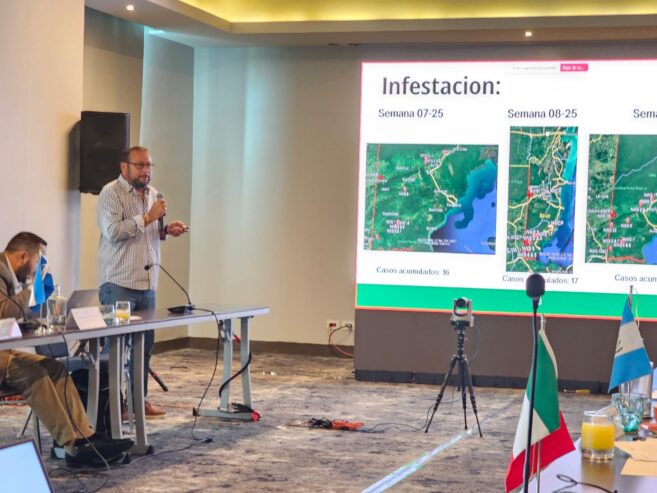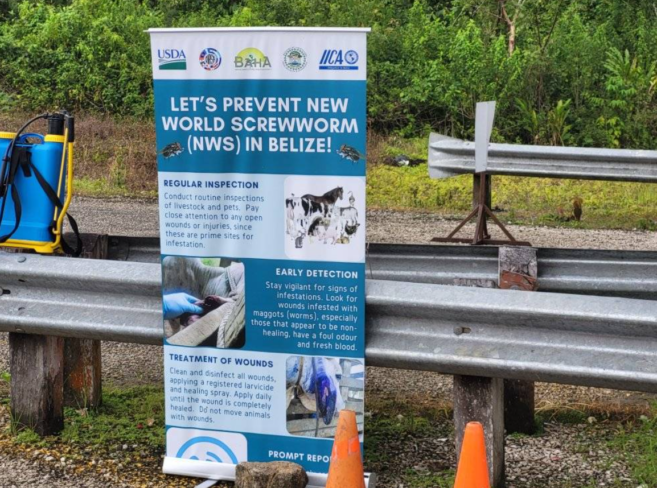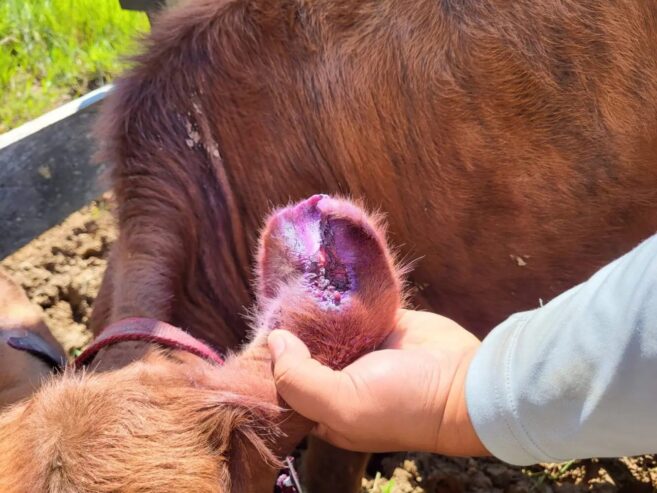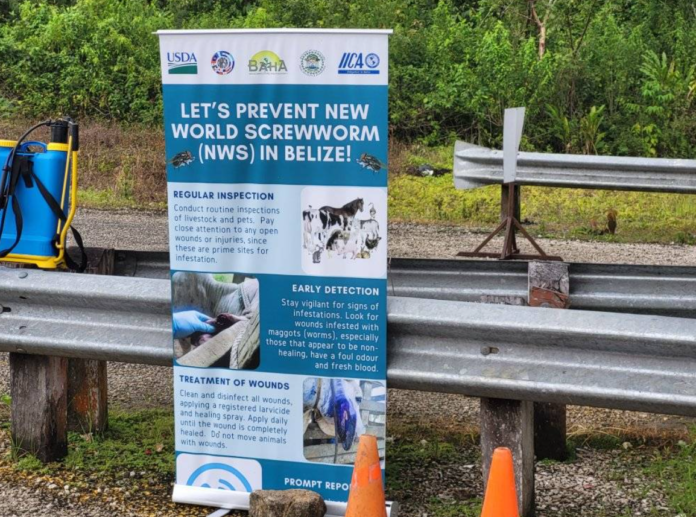Since the first confirmed case of the New World Screwworm (NWS) was reported in Belize on December 26, 2024, the Ministry of Agriculture has been actively managing the outbreak, reaching 63 confirmed cases in late April. Minister of Agriculture, Food Security, and Enterprise, Honorable Jose Abelardo Mai, provided this update during a regional meeting in San Salvador. During this meeting, Minister Mai led discussions among agriculture ministers from Central America, Mexico, and the Dominican Republic regarding controlling and eradicating pests.
Minister Mai stated that, despite the absence of sterile fly releases in Belize, the country has successfully managed to contain the spread of NWS, with no confirmed human infections or cases reported in the Corozal District. Only two cases have been recorded in the Orange Walk District. He attributed Belize’s success to strong collaboration among the Belize Agricultural Health Authority (BAHA), the Ministry of Agriculture, the Belize Livestock Producers Association (BLPA), farmers, and international partners. He emphasized that this joint effort would continue as discussions advance on a regional eradication plan. In contrast, Nicaragua has reported over 121,000 cases and 94 human infections, placing Belize among the countries with the lowest infection rates in the region.
Despite the outbreak, Belize continues exporting cattle to Mexico through a joint inspection system. This system treats infested animals before they are exported, which helps maintain trade continuity. Minister Mai previously assured the media that the recent U.S. restrictions on cattle imports from Mexico due to their cases of NWS do not directly affect Belize, as the country does not export livestock to the U.S. However, the risk of trade disruptions remains a concern.
Currently, a regional plan and budget are being developed to eradicate the New World Screwworm. This proposal will be submitted to U.S. and international agencies for potential funding support, highlighting the importance of international cooperation in safeguarding Belize’s agricultural economy.
Authorities emphasize the importance of keeping animals safe, as infestations can affect any warm-blooded animal. Inspect all livestock, pets, and horses daily for even tiny wounds. Pay particular attention to the navels of newborns, as well as the ears, eyes, mouth, and hooves. Additionally, watch for signs like maggots in wounds, foul odors, or changes in your animals’ behavior. Clean wounds immediately with an antiseptic or clean water and cover any open wounds to prevent flies from laying eggs. If you suspect any cases, report them to BAHA at 824-4872 or 670-7003 and follow the recommended treatment closely.

Share
Read more

